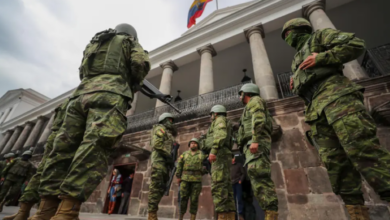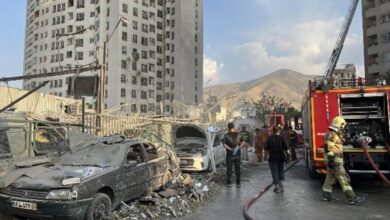Justice: Justin Bieber’s album that shows his musical maturity
The Canadian musician released Justice, his sixth album, which explores his religious aspect and shows why he still is one of the undisputed kings of pop .

The artist’s new album, Justice, sets a record by debuting at number one on the Billboard 200 chart. Photo: IG-justinbieber
LatinAmerican Post | Ariel Cipolla
Listen to this article
Leer en español: Justice: Justin Bieber’s album that shows his musical maturity
Justin Bieber is synonymous with two words: controversy and talent. By approximately 2010, the artist had become one of the symbols of the new breed of pop music on the planet. For example, at the time, the song Baby was the most viewed video on all of YouTube.
However, as he progressed into his adolescence, some personal problems began to emerge that put him on the front page, not so much because of his talent, but because of his conflicts. For example, drug use, fights with his girlfriends, and even controversies on social networks.
In any case, no one doubted the Canadian's musical talent . As El País portrays, at the age of 27 he managed to achieve an emotional balance through religion and his marriage to Hailey Baldwin, where he promises to "cure humanity" with his songs, something he tried through his new album, Justice, which sets a record debuting at number one on the Billboard 200 chart. Let's see what it is like.
Justice, the new album by Justin Bieber
Justin Bieber is one of the biggest stars of this decade. Therefore, his 27 years were cause for uncertainty. Let's remember that it is a "cursed" number for music, as it is the age at which some stars died, such as Kurt Cobain, Jim Morrison, Jimi Hendrix or Amy Winehouse.
justin bieber se acaba de convertir en el primer artista masculino en la HISTORIA que debuta su nuevo álbum justice y su single peaches en el #1 del hot100/billboard200 de forma simúltanea,, HIZO HISTORIA
— josi????; (@sighrems) March 29, 2021
However, for the Canadian it was a return to music stardom and a departure from personal conflicts. Through its 16 songs, all the compositions are much closer to pop, something that brings him closer to his musical essence. However, there is a truly transcendental and disruptive factor in this work: social justice.
This album, which has the collaborations of artists such as Khalid, Burna Boy, Chance The Rapper or Benny Blanco, is divided into two parts. Precisely, they are separated by MKL Interlude, which is an audio of Martin Luther King where he talks about the importance of justice, which is the axis of this work and the reason why it bears this name.
Throughout the first part, we see how religion positively influenced Justin Bieber's life, to the point of healing him spiritually. Basically, in his songs he was "lost" until he finds God, who shows him the way. Later, the album explores a much deeper and more intimate facet of the artist.
All this explains that Lonely, one of his successes and the theme that closes this work, is a completely heartbreaking piece, which lets us see the human being and not the character who dominated his life for a long time. This new album lets us see a "new era" of the Canadian, with songs that inquire about his Christian beliefs, such as Holy.
Also read: These musical hits are 20 years old since their premiere
Anyone is another of those deep themes, where he explains the fear of losing loved ones. However, the album also leaves room for dance tunes, as with Love You Different, with some Latin rhythms. Even with Die For You he is allowed to revive some of the most important styles of the eighties. That is, all symbols of musical maturity, which do not allow him to be pigeonholed into a single role or genre.
If you were wondering about hits, the truth is that there are two that are very clear. The first of them is Peaches, an ode to love. This song was one of the cuts of this album, where the moving rhythms predominate, but also the sentimental revelations that are one of the axes of this album.
The other is undoubtedly Hold On. Continuing with the same tune as the previous one, it can be seen that the singer completely enriched his musical production, but that he continues to have the ability to launch huge hits that immediately reach the top positions of the main radios and applications for listening to music.
Ultimately, Justin Bieber's Justice is a great work that shows us a completely different face of the artist. In other words, it is the result of a new spiritual and religious life, which involved eliminating his character and revealing his "true self."





